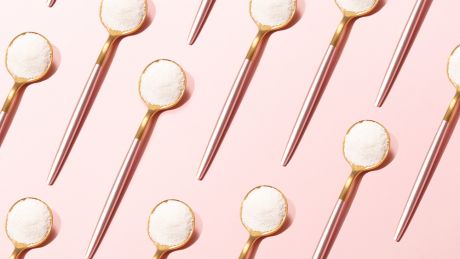What Is Collagen And Do You Need Collagen Supplements?
Collagen is appearing in more supplement brands’s offerings, but a balanced diet can provide all you need

The world of sports supplements is constantly evolving and collagen is one of the rising stars, cropping up as an ingredient in ever more products. We need collagen to support our bodies in a multitude of ways, and it can be especially useful for sports people pushing their bodies harder than most do through regular training – but does that mean collagen supplements are worth buying?
For an impartial, expert perspective on collagen and how you can go about getting what you need, we spoke to dietitian Linia Patel, spokesperson for the British Dietetic Association.
What is collagen?
Collagen is the most plentiful protein in the body. You find it in bones, muscles, tendons, hair, cartilage and even blood vessels. I think most people think of collagen in terms of the skin, but actually it’s all over. Structurally, if you’re talking about what collagen is, it’s three amino acids coiled to form a really strong helix.
As you get older your collagen level naturally decreases. How quickly it decreases is influenced by a number of things such as diet, sun exposure, smoking, stress levels.
You can’t actually measure your level, but you know that you have less collagen on board when you start getting wrinkly skin, for example, or less flexible tendons and ligaments. Slightly weaker muscles, joint pain and gut problems are linked to collagen as well.
Can you get collagen from your diet?
In a way. You make collagen by combining the three amino acids I talked about. These amino acids can be found in protein-rich foods from animal products. Foods that are great for it are fish, chicken and beef, or broth made from those. Vegetarians can still get it from foods like pulses, wholegrains and nuts, but you’ll have to eat a higher amount of them.
Can your collagen needs be taken care of through a balanced diet?
We don’t have a recommendation for how much [of the amino acids that make up collagen] we need to eat – it’s all through a balanced diet. In collagen production, even when you get the three amino acids together you still need vitamin C, zinc and copper to produce it. This is why you need a healthy balanced diet. Good sources of vitamin C are fruit and vegetables, and zinc is also found in meat, dairy and legumes, which also provide copper.
Get the Coach Newsletter
Sign up for workout ideas, training advice, reviews of the latest gear and more.
How much research has been done on collagen supplements?
First I need to point out it’s a relatively new topic – the last five years – and the research on it is fairly limited. A lot of the research that does exist tends to be industry-funded, which would make sense to an extent because if you’re producing a supplement, you want to have some research behind it. However, in the scientific world that means it’s slightly biased in terms of the findings.
A lot of the studies are lab-based, but there are more human ones coming, and I must say that even though evidence is scant, it looks promising – but with the massive caveat that the research that we have is not top level yet.
What benefits could be linked with collagen supplements?
Most of the research has been done in bone and joint health, and skin. Maybe gut health would be the third. In terms of sports, the benefits would be linked with bone and joint health: people who are struggling with that or their ability to recover after surgery, like reconstruction if they’ve had an ACL ligament tear.
The research is mostly with osteoarthritis, and decreasing pain and decreasing stiffness. And it shows that taking the supplements does help with pain and stiffness in the short term.
See related
Are there any downsides to using the supplements?
If you stop taking the supplements you don’t get the benefit. Basically, if you do start taking a supplement, it’s not something you’re doing for a couple of months, it’s something you’re doing for a lifetime.
Whereas if you didn’t, you might just manage the pain?
Exactly.
Overall, should people focus on their diet if they’re concerned about collagen?
Speaking as a dietitian, it’s food first all the way. A healthy balanced diet, getting in all the nutrients and then – if your wallet allows because these supplements are not necessarily cheap – perhaps take some collagen. It might have a positive effect on joints; it might have a positive effect on gut health.
But I would say again that the research is still in its early days and while what we’ve seen is positive, it’s not yet enough for our scientists to say yes, absolutely take it. The research is not high-quality enough and it hasn’t been done for long enough. If you want to supplement, that’s fine, just know that you’re doing it forever.

Nick Harris-Fry is a journalist who has been covering health and fitness since 2015. Nick is an avid runner, covering 70-110km a week, which gives him ample opportunity to test a wide range of running shoes and running gear. He is also the chief tester for fitness trackers and running watches, treadmills and exercise bikes, and workout headphones.
